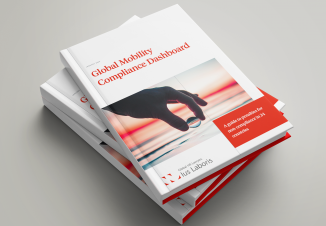
A law for the promotion of the start-up ecosystem, which went into effect as of December 2022, modifies the Spanish Special Tax Regime applicable to workers, professionals, entrepreneurs and investors who relocate to Spain.
The Law introduces modifications to the existing Special Tax Regime for Inpatriates, which are applicable to individuals who acquired Tax Resident status in Spain as of Tax Year 2023.
Under the Special Tax Regime, taxpayers are only taxable for their Spanish-sourced income, at a flat tax rate on their general tax base (e.g. employment income, rental income, income allocation from real estate) and a progressive tax rate on the savings tax base (e.g. dividends and interest). However, worldwide employment income received after the taxpayer’s transfer to
Spain will be considered as Spanish-sourced income, and any foreign tax credit will be limited to a 30% of the total tax due.
Under the modifications in the Law, the tax rate applicable to the general tax base remains the same as before (24% on the first EUR 600,000 and 47% on any remainder), but the rates applicable to the savings tax base have increased as follows:
| Taxable Income (in EUR) | Tax Rate Applicable |
| 0 to 6,000 | 19% |
| 6,000.01 EUR to 50.000 | 21% |
| 50,000.01 EUR to 200.000 | 23% |
| 200,000.01 and up | 26% |
| Taxable Income (in EUR) | Tax Rate Applicable |
| 0 to 6,000 | 19% |
| 6,001 to 50,000 | 21% |
| 50,000.01 to 200,000 | 23% |
| 200,000.01 to 300,000 | 27% |
| 300,000.01 and up | 28% |
Under the modification, the requirements to qualify for the Special Tax Regime have been reduced, and the pool of eligible individuals has increased.
Prior to the modification, the requirements were that (i) the taxpayer had not been a Tax Resident in Spain for the previous ten years, (ii) he or she does not obtain income obtained through a permanent establishment located in Spain, and (iii) the taxpayer transfers to Spain due to:
The modification reduces the period during which the person has not been a Tax Resident in Spain from ten years to five years. It dispenses with the requirement that a director not be a shareholder (subject to some particularities). And it adds the following to the list of acceptable employment:
The requirement of not obtaining income through a permanent establishment located in Spain (or income from economic activities in Spain) remains the same.
The taxpayer’s spouse (or co-parent of their children) and their children under the age of 25 may take advantage of the Special Tax Regime if they meet the following requirements:
The Spanish Special Tax Regime applies a 24% flat tax rate on the taxable income for the first 600,000 EUR on the general tax base for each Tax Year.
The following is an example of how the tax break would work to the benefit of a hypothetical employee (all figures in EUR), assuming the person lives in Madrid:
| Annual base gross salary | 100,000 | ||||||
| Annual gross bonus | 15,000 | ||||||
| Total gross income | 115,000 | ||||||
| General Tax Regime | Special Tax Regime | |
| Tax Rate | 32.53% | 24% |
| Tax Due | 37,411.41 | 27,600 EUR |
Under the Special Tax Regime, the person would pay EUR 9,811.41 less than under the General Tax Regime.
The Special Tax Regime must be requested within the first six months after the taxpayer registers with the Spanish Social Security system. If the application is not done in time, the taxpayer will not be able to apply for it in the future.
The regime applies for the first Tax Year in which the person becomes a Tax Resident in Spain and for the following five years. If the taxpayer ceases to be a Tax Resident, he or she will lose the Special Tax Regime for the remaining years. Additionally, when a taxpayer leaves the country during the second half of the year, he or she must inform the tax authority within one month after departure to avoid being taxable in Spain for the rest of the year.
Under the general tax regime in Spain, worldwide wealth is considered for purposes of the wealth tax. However, under the Special Tax Regime, only Spanish wealth will be taken into account.
Spain’s Special Tax Regime for inpatriates is generous in its tax breaks, and the December 2022 amendments to the regime have greatly expanded eligibility to those breaks. Many employees who work remotely are now eligible for the Special Tax Regime.
Discover more about compensation and benefits on our Global HR Law Guide


